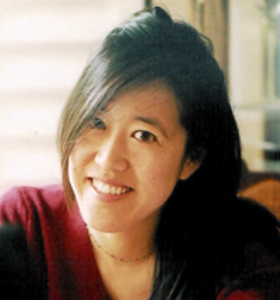How do you balance living up to the expectations of others with being true to yourself? How do you find the strength to stand up for what you believe is your own path? These are just some of the themes that drive the Disney animated feature, Mulan.

Based on Chinese legend, Mulan tells the story of a young girl determined to save her ailing father’s life by taking his place when he is called to war. It’s as much about honoring the life you have chosen as it is about living an honorable life.
Rita Hsiao, one of the screenwriters, reveals more than a causal similarity to the character she helped shape.
“What made the story of Mulan interesting to me was its emphasis on duty, honor, and respect — all very important in Asian culture. Mulan’s fight was more than on the battlefield. She fought to figure out who she was in this very strong culture. Was she the perfect daughter, the perfect bride? Both were ways to honor and show respect for her parents. Mulan did end up bringing them honor, but in her own way. It was that journey — to do what she felt was right and, in the process, be true to herself — that connected with me.
“In college, I majored in Artificial Intelligence mostly to please my parents. My true passion was writing. I wrote musicals and plays, mostly to please myself. My parents kept saying I’d never find a job, so I took all these computer courses, even though I knew that this wasn’t what I wanted to spend my life doing. When I graduated, I got my foot in the entertainment door answering phones at a TV production company, which, of course, freaked my parents out. ‘You just finished school and have this degree and you’re answering telephones?’ But it was about finding the strength to break away and do my own thing.
“This came out in Mulan in the sense that we wanted her to be strong, to become a woman who was more than what society and her parents expected. Ultimately, Mulan finds strength and conviction where most would find defeat. In the scene after she’s been discovered and thrown out of the army for being a woman, she feels horrible. Looking at the helmet she once wore as a warrior, she comes to the conclusion that maybe she didn’t go only to save her father’s life, but also to prove that she could do things right; so that when she looked in the mirror, she’d see someone worthwhile.
“I think all of us, at times, are filled with doubt. We hear people tell us, ‘You can’t do that. You should do this.’ Yet, there’s something deep inside all of us that says, ‘You know what? There’s more to me than what you’re saying,’ and then going out and actually trying to prove it to yourself and others.
“When I told my parents that I was going to be a screenwriter, my Mom said, ‘A writer! Will you have health insurance?’ Part of the reason I moved out to the West Coast was because I grew up in New York and just wanted to get away and be my own person, figure things out for myself.
“Like Mulan, I was torn between wanting to please my parents and wanting to be true to myself — to find that inner strength to stand up for what I wanted. Believing in yourself is very hard and you’ve got so many external forces telling you how to act or be. But I will always appreciated having been instilled with a strong set of values. Whether it’s being respectful of other people, working really hard, or trying to be honest and treating others as you’d want to be treated yourself.
“For my birthday, I got a card from my Mom and it was a Mulan card. Inside, it read, ‘The greatest honor is having you for a daughter.’ I thought, hey, my line is in a birthday card that my parents sent to me because they’re so proud.”
Comments










